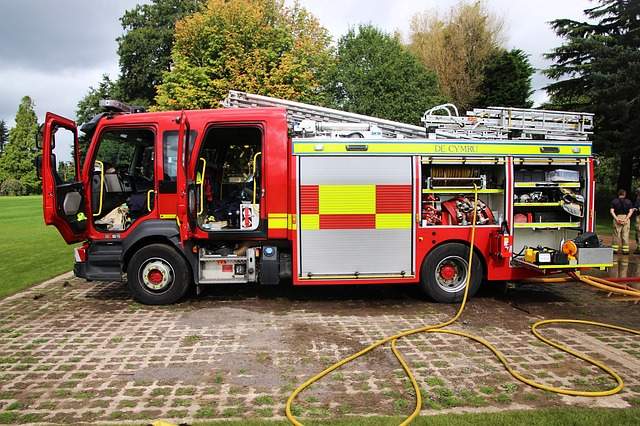
Environment Health Safety Audit Services
The general safety audit encompasses all aspects of safety namely the Safety Management System, Health Safety Environment (HSE), Electrical Safety, Fire Safety etc. A safety audit report offers comprehensive guidance in improvement on various aspects of operations like electrical safety, fire safety and health.
HSE audits reflect on health, safety and environmental issues for industries like petrochemicals, chemicals, cement, power sectors, fertilizer, pharmaceuticals, paper and so on, construction sites, hotels, hospitals, schools, office premises, etc.
Reliability over proper functioning of electrical systems could be assured by regular electrical safety audits. Electrical fire safety audit refers to the measures taken to prevent fires caused by faulty electrical equipment or wiring, and to minimize the risk of injury or property damage in the event of an electrical fire. Electrical fires are a common cause of fire incidents, and they can be particularly dangerous because they often start without warning and can spread quickly.
We have witnessed some accidents in the past like fire at Theatres, Hospitals etc. An electrical safety audit could avert such major accidents.
Conducting electrical safety audit for Industries, Power Sector, Service Sectors such as IT Parks, Hotels and Telecommunications as per the Electricity Act and Indian Electricity Rules and related standards, is not only essential for safety of electrical systems but would assure you the reliability of electrical systems.
We provide fire and electrical safety assessments, studies and audits according to various national and international laws, standards and guidelines.
Offering audits and training based on fire & electrical state regulations, National Building Code 2016, internal policies and industry wise standards of practice. Our recommendations also include international standards (IS) on Wiring, Earthing, Smoke Detector, Heat Detector placements.
safety facts: construction's "fatal four"
The Federal OSHA reported the above figures from the US construction industry. A total of 4,836 workers were killed on the job in 2015. Visit the page for entire coverage.
fire & electrical safety services
Bicon is one of the prominent electrical safety and fire safety audit companies in India, offering safety audits and consultancy to its clients across the country. Our clients often request customised safety audits, including training and compliance with various international safety standards. Our team of experienced safety audit consultants are well versed with the latest standards, and the quality of deliverable is reflected from the safety audit report and training we deliver.
- General Safety Audit
- Fire Safety Audit
- Electrical Safety Audit
- Construction Safety Audit
fire and electrical safety services & scope
The General Safety Audit encompasses almost all aspects of safety namely the Safety Management System, Electrical Safety, Fire Safety, Mechanical Safety, Maintenance, Physical & Chemical and construction safety.
The audit is carried out as per IS 14489 :1998 on “Code of Practice on Occupational Safety & Health Audit” to check the compliance with the Factories Act, 1948 and Rules for respective states, The Environmental Protection Act & Rules, the CEA Regulations, the Explosives Act & Rules and other important Indian Statutory requirements and Standards. Contact us for fee estimates.
Fire Safety audit is an effective tool for assessing fire safety status in industries, laboratories, office, hotel, malls, hospitals, schools etc. The audit helps to identify the areas for improvement in fire safety measures in fire prevention, protection and mitigation system in case of fire. The audit provides an action plan, which is used for fire prevention and mitigation and emergency preparedness. We conduct the fire safety audits as per The Factories Act, the Petroleum Act, the CEA Regulation & National Building Code 2016, India and other relevant safety standards. Contact us for fee estimates.
A large majority of fire accidences happen due to old wiring, under carpet wiring, fault in electric circuit connections and other such risks. The electrical system poses a threat to the safety of people and their property in the form of shocks, burns, injury, fire and explosion, including commercial and business losses.
The electrical safety audit is applicable for Industries, Power sector, Service sectors such as IT Parks, Hotels, Malls, Multiplexes, Airports and Telecommunications.
We conduct the electrical safety audit as per the CEA regulations and other national and international standards. Contact us for fee estimates.
Creating a list of potential qualified prospects for your service or product can be daunting when you’re beginning your business. However, this needs to be considered as a follow up on your Target Market Analysis so you can hit the ground running.
latest updates, regulations & standards
Occupational health safety management requires risk assessment, a quantitative risk assessment involves four steps – hazard identification, consequence analysis, frequency estimation and risk analysis/risk assessment together known as Quantitative Risk Assessment. Where as a risk assessment study which helps in addressing significant health and safety hazards in the activities and operations in industry is commonly known as HIRA. We refer and follow various best practices across the globe, including country regulations, standards, software tools.
- HSE UK – Industry Guidance
- Safe Work Australia – Safety Laws & Regulations
- Australia Safety Regulations – Australia Safety Regulations
- US Department of Labour – US Work Place Safety
- Singapore Ministry of Power – Work Place Safety and Health